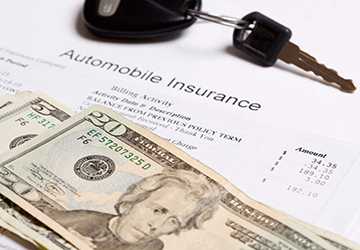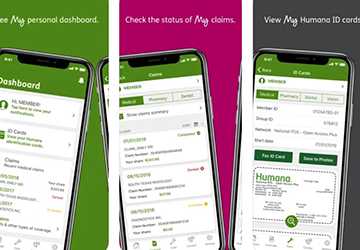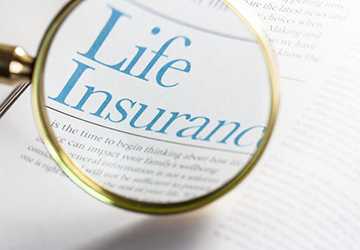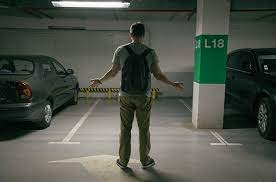How to Get Car Insurance without Any Hassle
In an era where unexpected situations can arise at any time, owning a car is an extra pleasure and a necessity. Car insurance provides financial protection against theft, accidents, and other unforeseen events on the road.

However, navigating through a dizzying array of insurance plans and providers can sometimes seem overwhelming. Fortunately, there are ways and tricks to get automatic insurance quickly.
How to get car insurance without getting into trouble?
Here's a step-by-step guide to help you get full coverage for your car.
Understand your needs
Before you buy car insurance, take some time to determine your needs. Consider factors such as your driving style, the type of car you drive, and your spending limits. Understanding your needs will help you narrow your search and choose the coverage that best suits your needs.
Conduct extensive research
Information is crucial when shopping for car insurance. Learn about the different insurance providers, offers, and policies. Look into more than just interest rates. Consider coverage limits, deductibles, and customer feedback. Websites and comparison tools are helpful when looking for the best coverage.
Compare quotes
Once you've determined your needs and preferences, it's time to get a quote. Talk to multiple insurance providers and ask about rates that suit your needs. By comparing quotes, you can better understand what pricing and coverage options are available to you. Feel free to haggle with your insurance company for the best price.
Consider bundling policies
Many insurance companies offer discounts to customers who purchase home and car insurance. Bundling your plans with one provider can save you money and simplify the insurance process.
Establish a Good Driving Track
Your driving history is an essential factor in determining the cost of insurance. Drivers with clean histories often receive discounts and reduced fees. Avoid violations and collisions when possible, and if you want to improve your driving and save money on your insurance, consider taking a defensive driving course.
Check and update regularly
Various factors, such as changes in driving style, buying a new car or life events, can cause your insurance coverage to change over time. You must regularly review your insurance policy and make necessary changes to ensure adequate coverage.
Seek experienced advice
Suppose you find the car insurance process daunting; don't feel free to ask an insurance agent or broker for help. These experts can help you choose the right coverage for your needs, guide you through the process, and respond to your inquiries.
Read the fine print
Before writing on the dotted line, ensure you understand your insurance policy's terms and limitations. Exclusions, limitations, and other terms and conditions that affect your coverage should be read carefully. If you have any questions about any part of
your policy, please seek clarification from your insurance company.
Consider other coverage options
Consider whether you need additional protection beyond regular liability and collision coverage, such as uninsured motorist coverage, roadside assistance, or reimbursement for a rental car. Although these additional services will slightly increase your rates, the peace of mind they can provide you is priceless in an emergency.
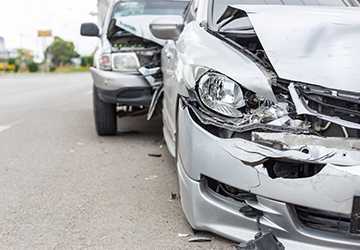
Be prepared for demand
Although no one likes to be in an accident, it is essential to be prepared for any eventuality. Learn more about your insurance company's claims process, including filing a claim, reporting an accident, and gathering information on-site. By proactively managing the claims process, you can ensure you receive timely support when you need it most.
What is the importance of integrated reporting?
Although most states require minimum liability coverage, it sometimes only provides adequate protection. Then, apply for full coverage. Comprehensive coverage protects your vehicle from non-collision damage, including theft, vandalism, falling objects and natural disasters.
Comprehensive coverage gives you peace of mind and protects your vehicle from all hazards. Consider the following situations where comprehensive coverage could save your life:
Theft and vandalism
Car theft and graffiti are an unfortunate fact of life in today's society. Comprehensive coverage can help pay for replacement or repairs if your car is stolen or damaged.
Natural disaster
Natural disasters such as wildfires and storms can damage cars parked outside. Comprehensive insurance can help pay for replacement or repairs if your vehicle is damaged.
Animal collision
A collision with an animal such as a deer can severely damage your car. If your car is involved in an animal accident and needs repairs, comprehensive insurance can help pay for them.
Falling things
Vehicles can suffer severe damage from falling objects such as hail or tree branches. If a falling object damages your car, comprehensive coverage can help pay for repairs.
Glass damage
A broken or cracked windshield is standard while driving. Comprehensive insurance often covers glass damage, so you can replace or repair your windshield without breaking your budget.
Final Results!
While comprehensive coverage may cost more than liability coverage, the added peace of mind may make it worth the cost. Before deciding to purchase comprehensive insurance, be sure to consider the costs and benefits, taking into account the age and value of your vehicle.
All in all, comprehensive coverage is a must-have for any car insurance policy. It provides financial stability in the event of unforeseen circumstances and gives you peace of mind by protecting your car from a variety of hazards. Consider comprehensive coverage when looking for car insurance, as it protects your vehicle and safety while driving.
